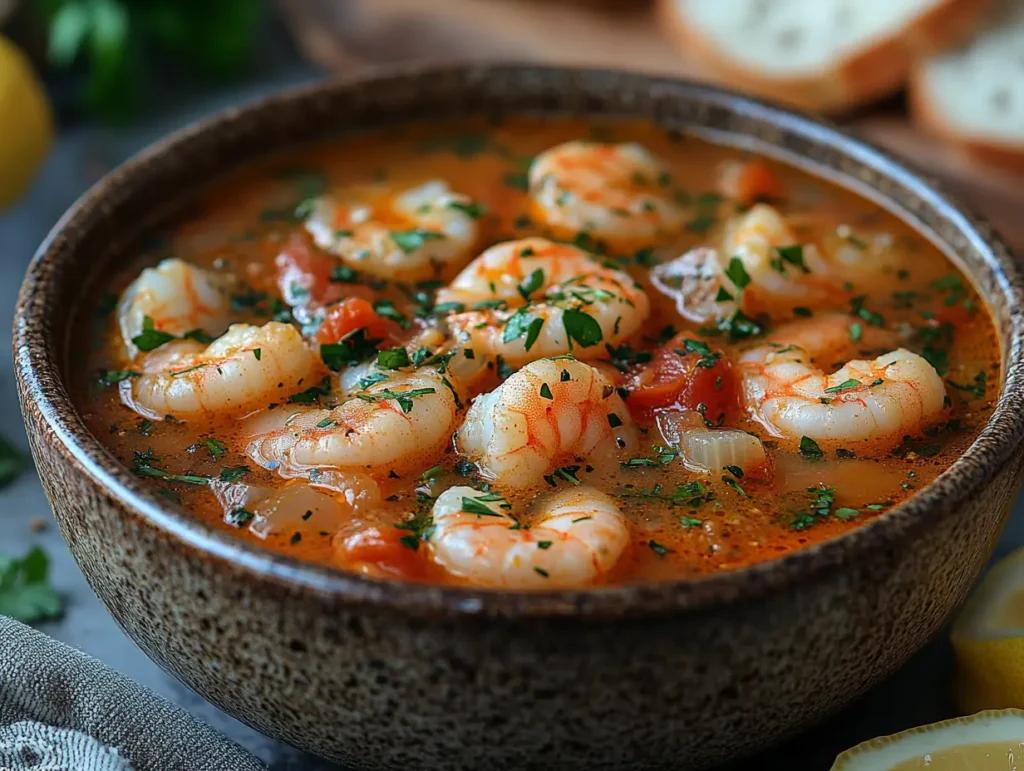
Seafood lovers, rejoice! Shrimp and scallop cioppino is a flavorful, hearty dish that brings the warmth of Mediterranean kitchens and the vibrant spirit of San Francisco’s fishing wharves directly to your table. This iconic Italian seafood stew is a robust and aromatic mix of shellfish simmered in a garlicky, herb-infused tomato broth, making it one of the most cherished Italian-American recipes. Its rustic charm and elegant flavors create a truly memorable dining experience.
In this article, we’ll explore the rich history and origins of this classic dish, break down the perfect shrimp and scallop cioppino recipe, and offer valuable tips, substitutions, and serving suggestions. By the end, you’ll have all the knowledge you need to create your own delicious bowl of San Francisco cioppino at home, whether for a weeknight indulgence or a special occasion.
📖 A Brief History of Cioppino
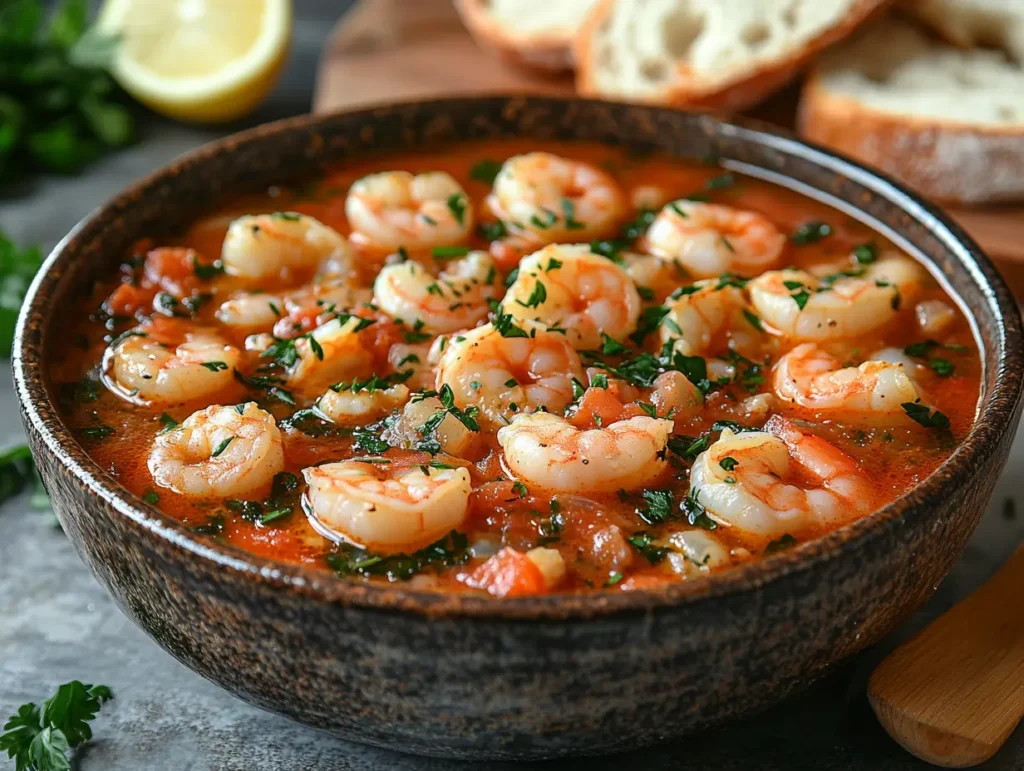
Cioppino (pronounced “chuh-PEE-no”) is a quintessentially American dish with deep Italian roots. It originated in the late 1800s in the North Beach neighborhood of San Francisco, home to a large community of Italian immigrants, many from the port city of Genoa in Liguria, Italy. These fishermen would cook up a stew at the end of the day using whatever catch was leftover. This “use-what-you-have” philosophy is the heart of many great comforting meals, similar to these Grandma’s cheap recipes. Whatever was on hand—Dungeness crab, clams, mussels, shrimp, or rockfish—was tossed into a communal pot with tomatoes, garlic, herbs, and wine.
The name “cioppino” is believed to derive from ciuppin, a word in the Ligurian dialect for a classic fish stew from that region. As the recipe adapted to its new Californian home, it evolved. The abundant Dungeness crab became a signature ingredient, and the tomato base grew richer, creating the beloved San Francisco cioppino we know today. This dish now sits alongside other treasured Italian chicken pasta recipes as a pillar of Italian-American cuisine. Over time, modern variations have flourished, and one of the most beloved is the shrimp and scallop cioppino—a simplified yet elegant version that focuses on two tender, sweet shellfish that are more accessible for home cooks.
🍲 What Makes This Shrimp and Scallop Stew Special?
Unlike many other seafood stews, cioppino boasts a rich and complex tomato-based broth that is aggressively seasoned with garlic, fennel, and herbs, creating a bold foundation that enhances the natural sweetness of the seafood. The choice to focus on shrimp and scallops in this particular cioppino recipe lends a delicate sweetness and a succulent, buttery texture that beautifully balances the robust, acidic base.
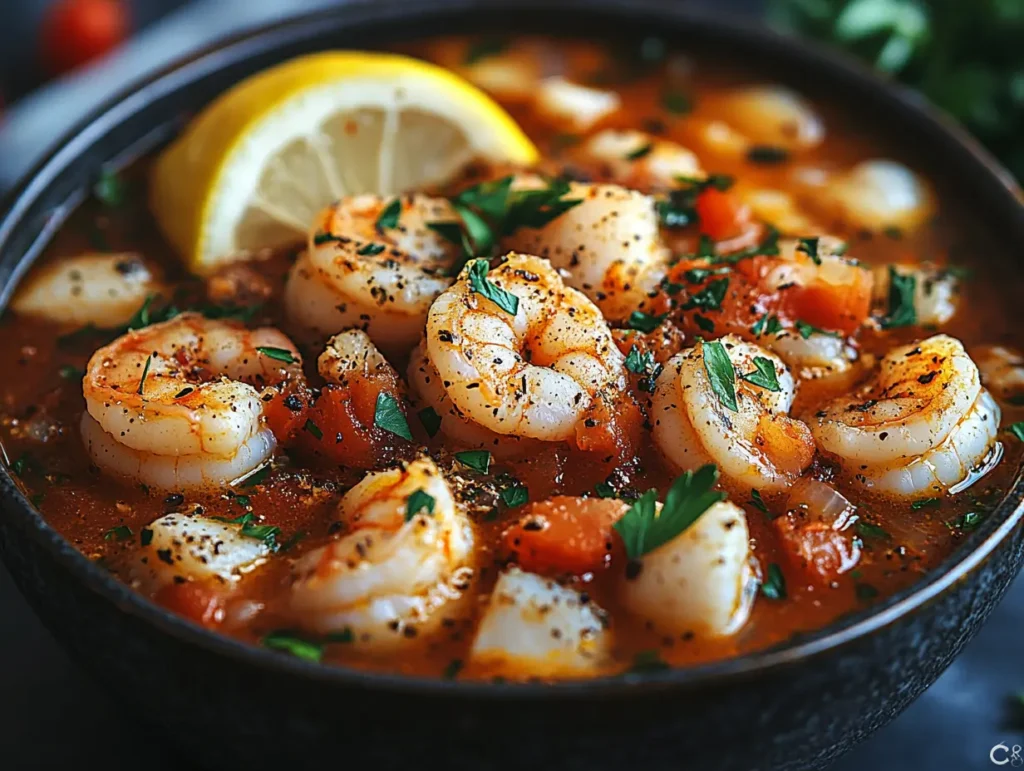
Here’s what sets this version apart:
- A Flavorful Broth: The tomato-rich broth is enhanced with aromatics like garlic, fennel, and a blend of Italian herbs, creating a deep and savory flavor profile.
- Quick-Cooking Seafood: By using shrimp and scallops, the stew comes together quickly, ensuring the seafood remains tender and succulent.
- Flexible and Accessible Ingredients: This recipe is designed for easy home preparation, with ingredients that are readily available at most supermarkets.
- Simplified Preparation: This version skips shell-on seafood, making for a cleaner, more manageable cooking process and an easier dining experience—perfect for weeknight dinners or for impressing guests on the weekend.
🛒 Ingredients for Shrimp and Scallop Cioppino
Here’s a detailed breakdown of everything you’ll need to create this comforting Italian seafood stew.
🧾 Ingredient Table

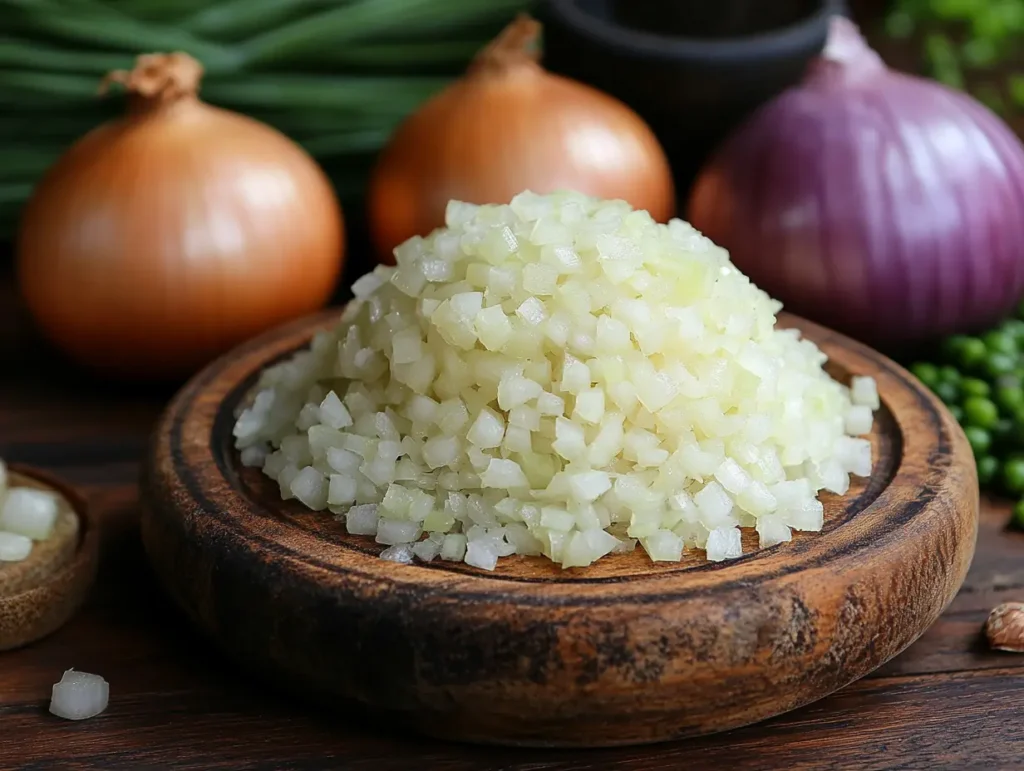
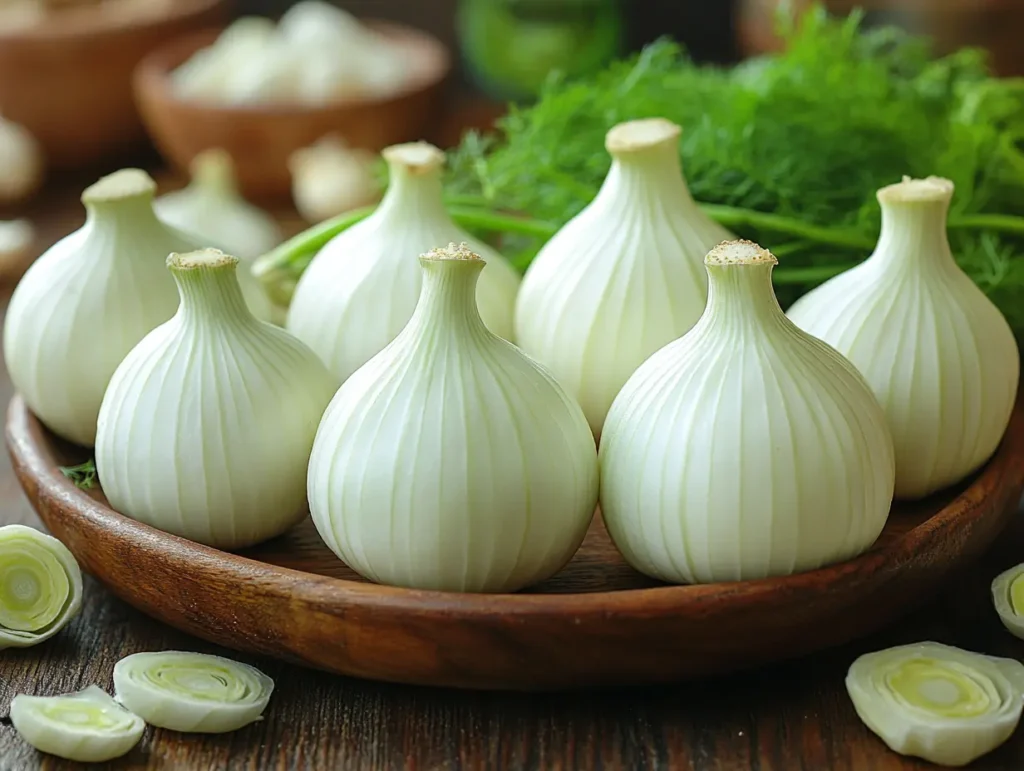
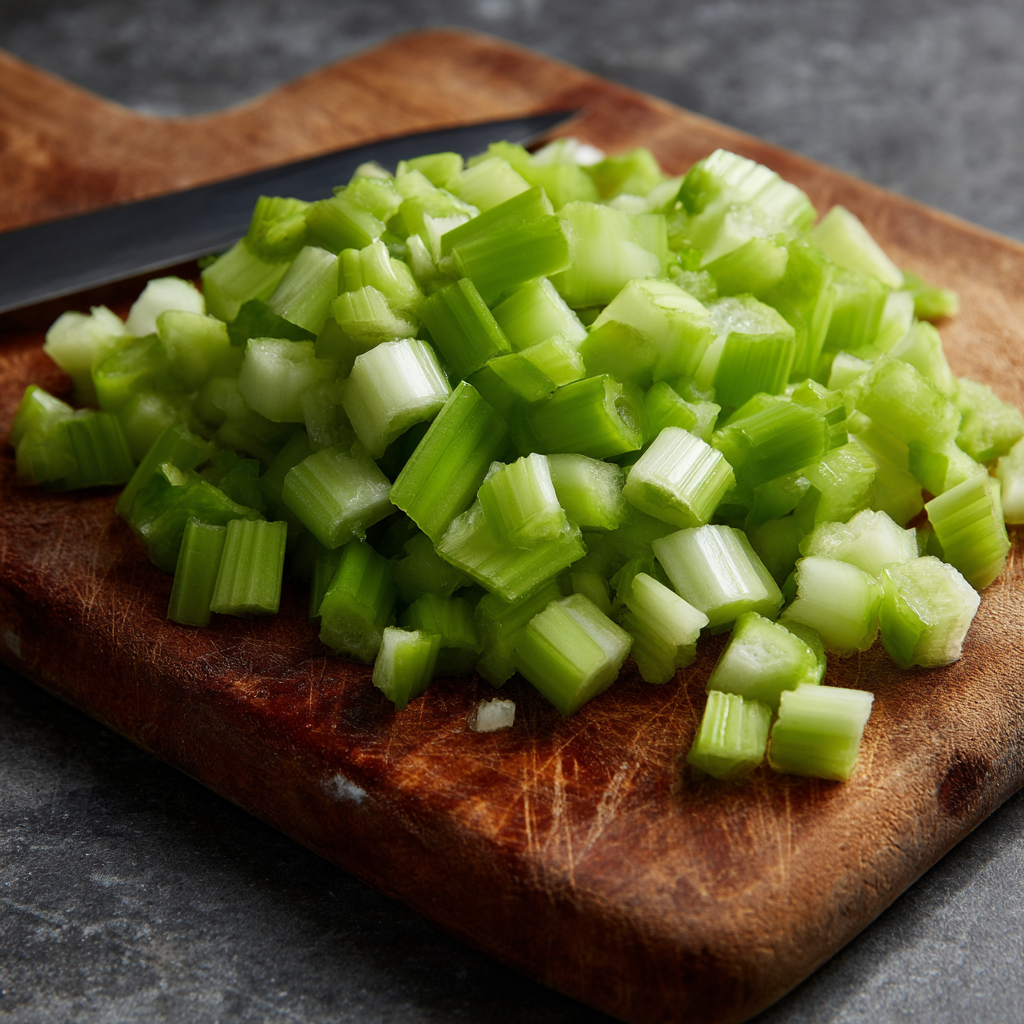

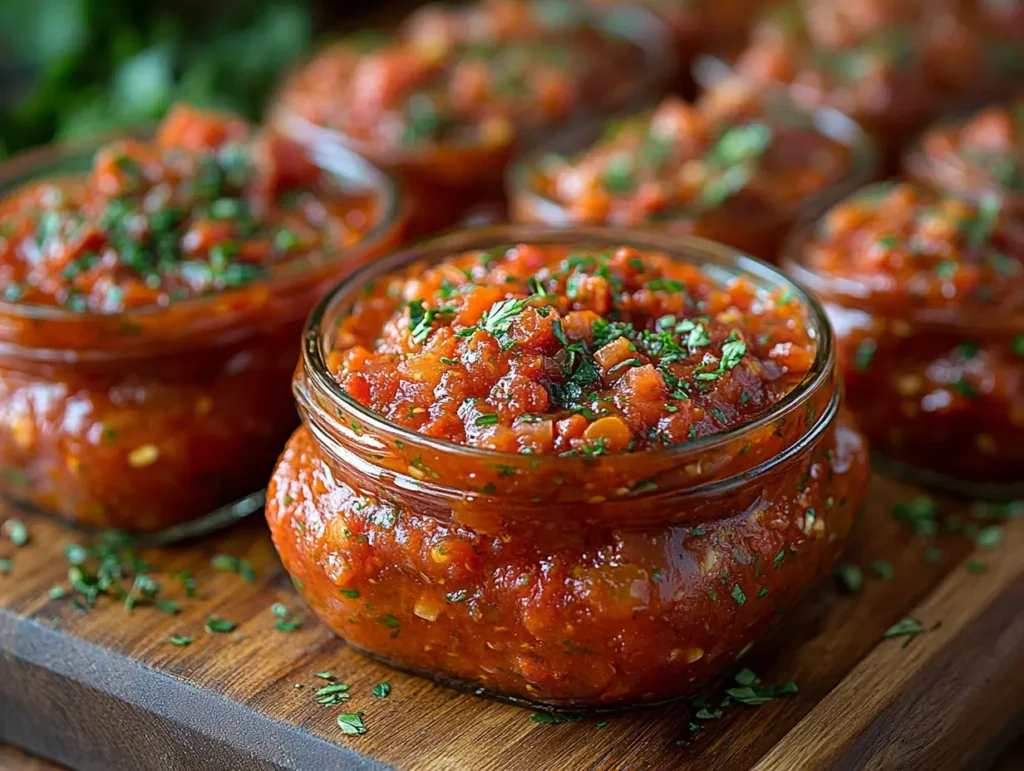
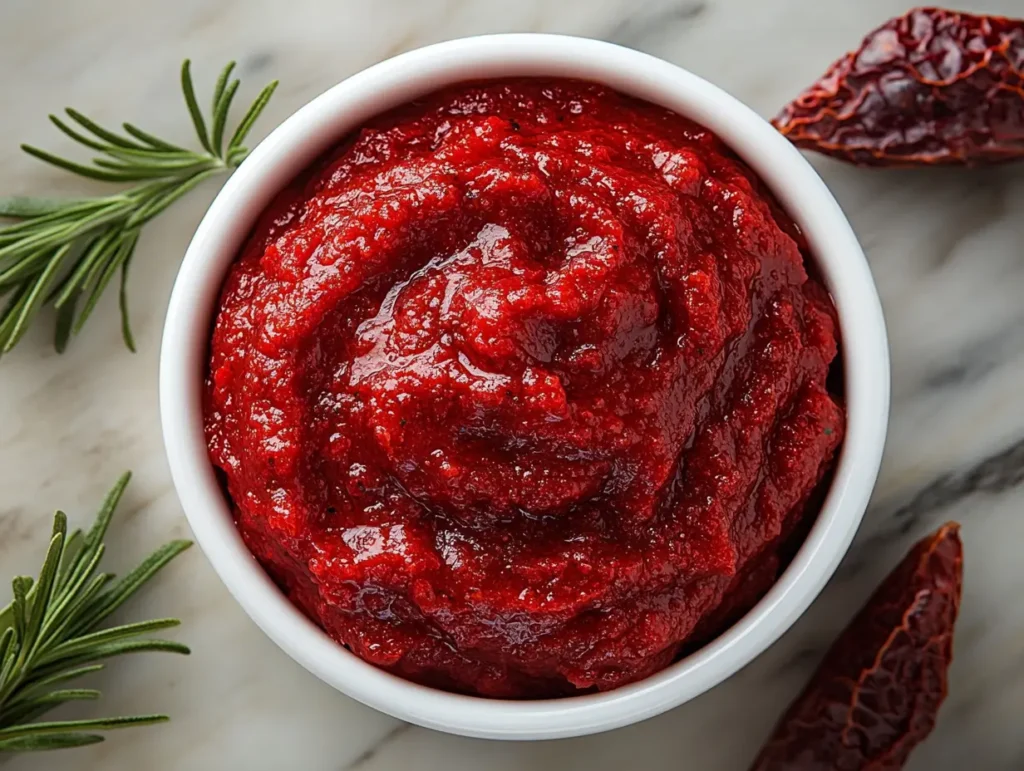
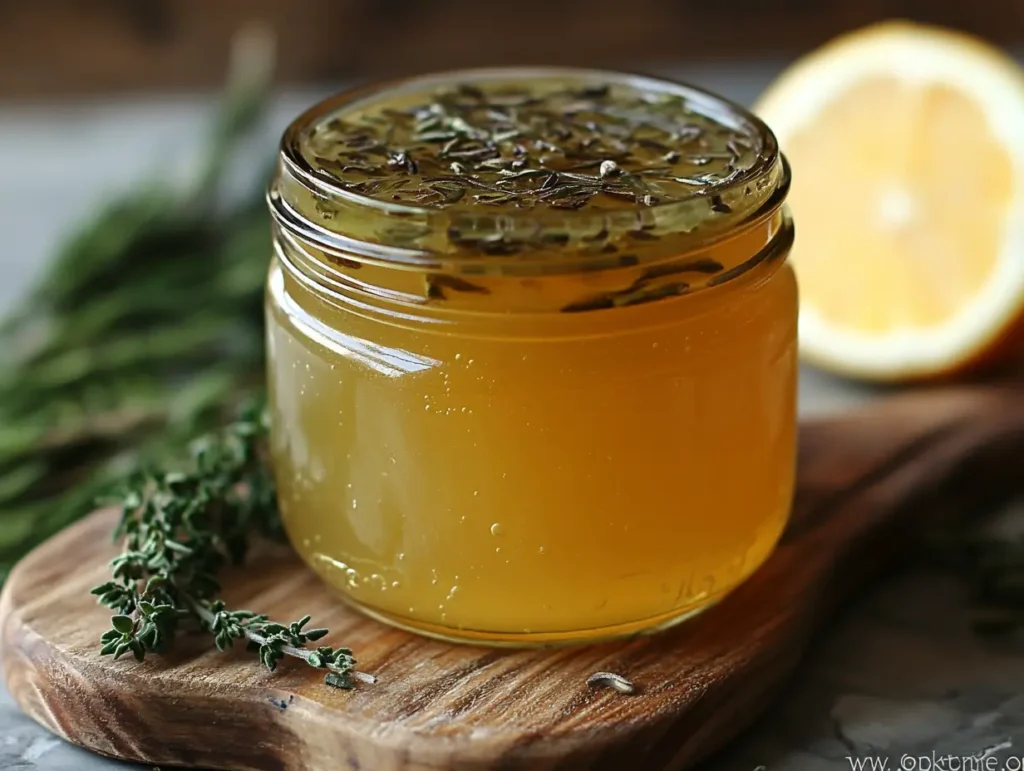
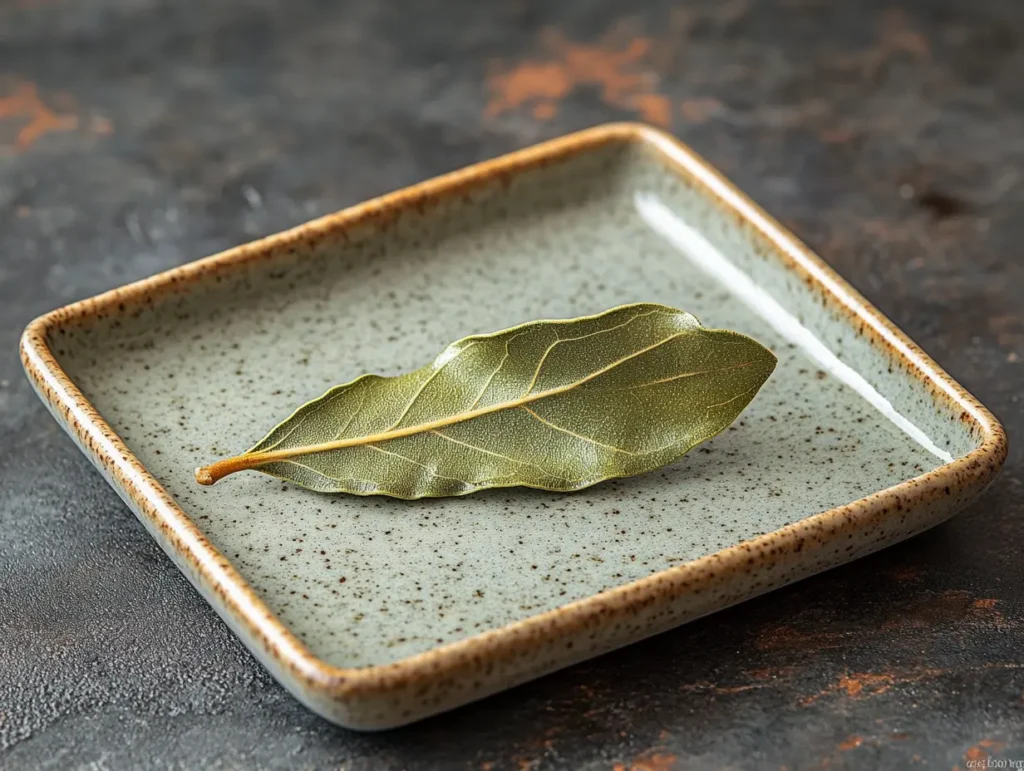
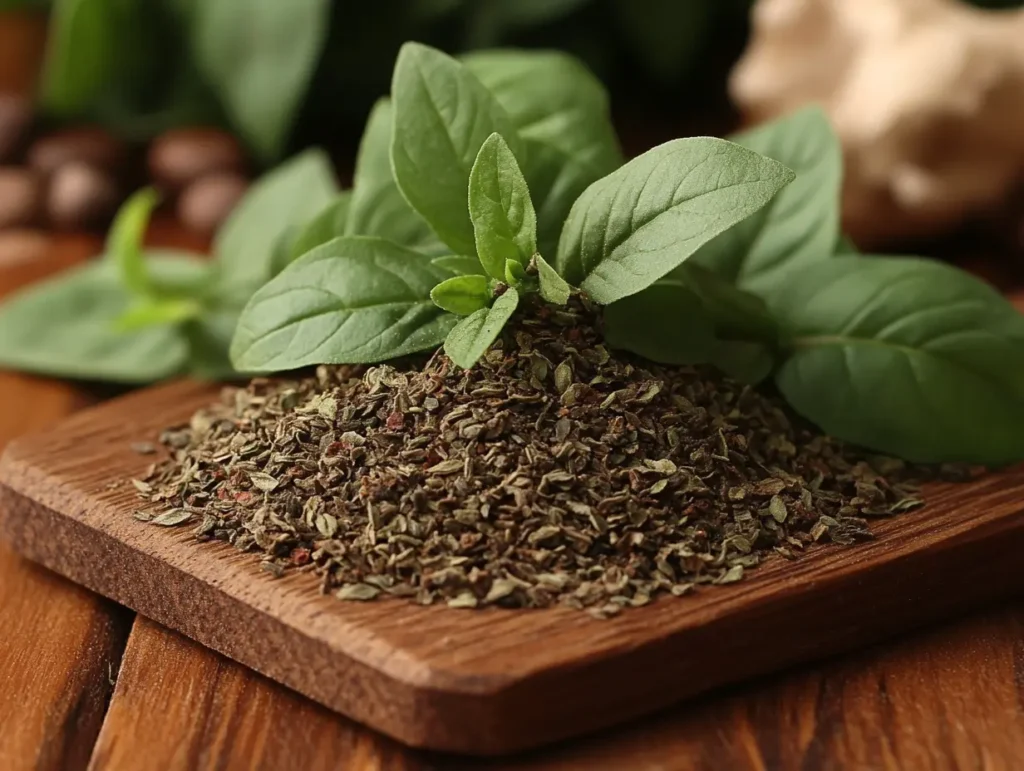
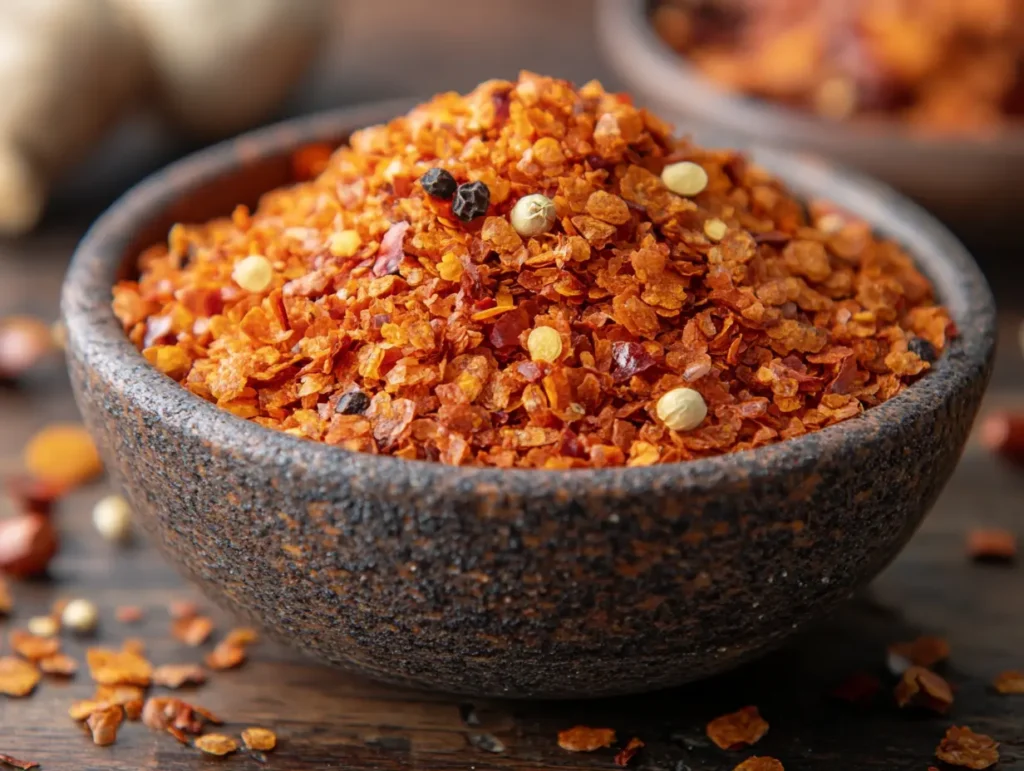
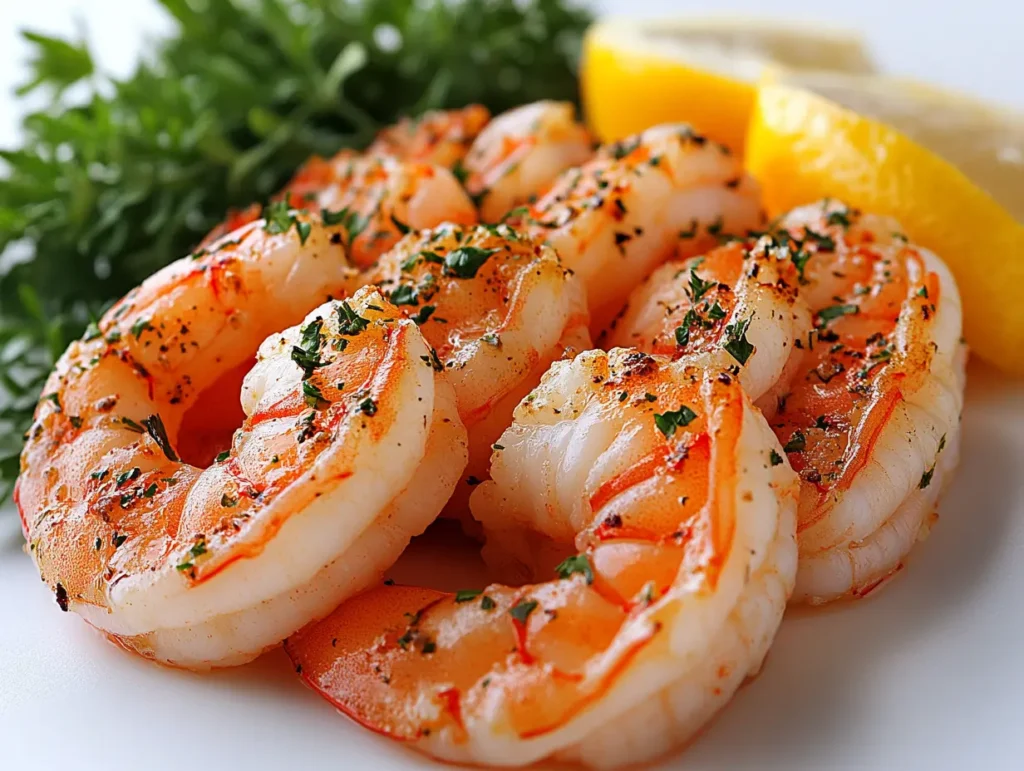
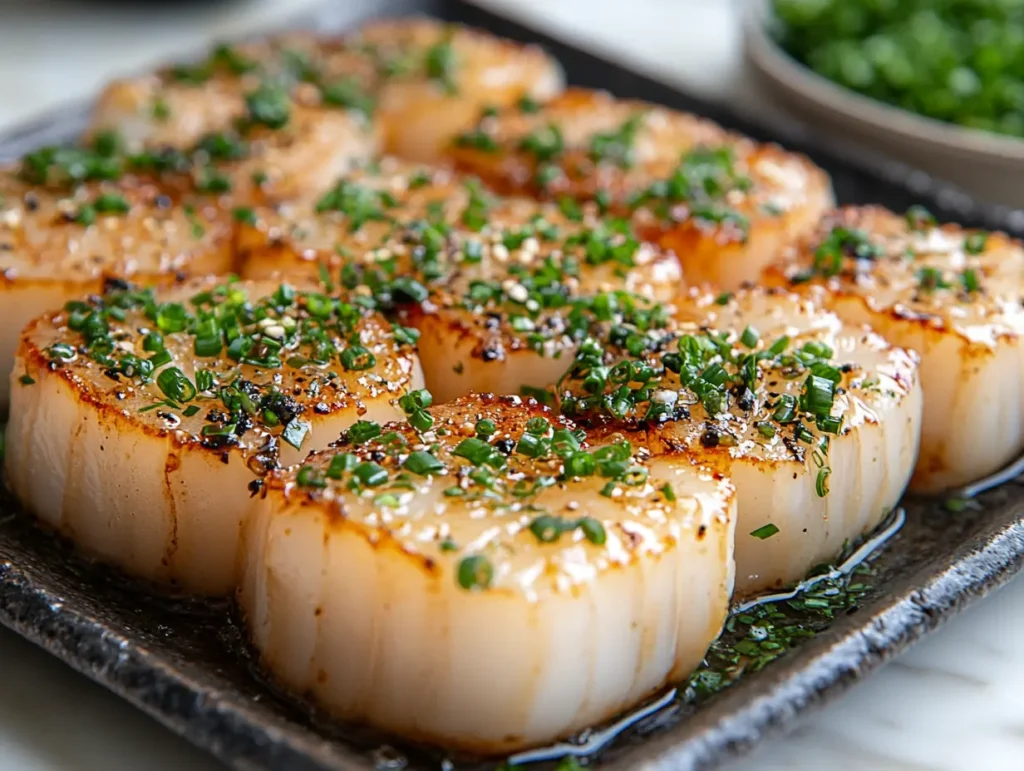
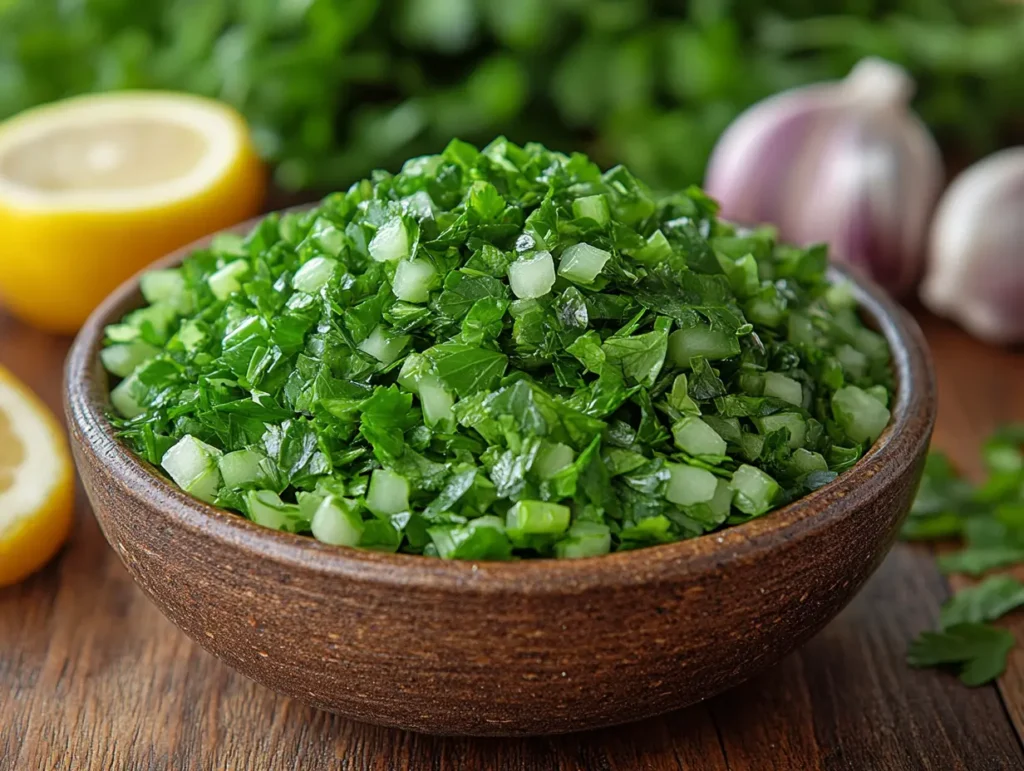
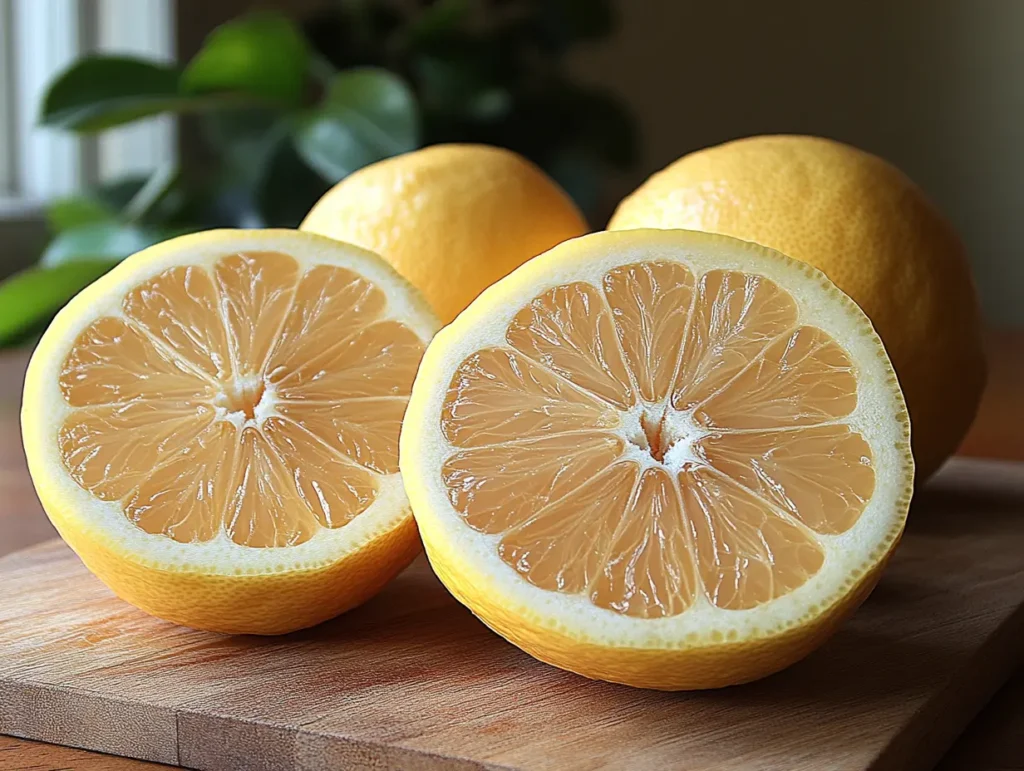
| Ingredient | Quantity | Notes |
|---|---|---|
| Olive oil | 2 tbsp | For sautéing the vegetables and building the flavor base. |
| Yellow onion | 1 medium, diced | Provides a sweet and aromatic foundation for the stew. |
| Fennel bulb | 1 small, thinly sliced | Adds a subtle, anise-like flavor that is a hallmark of traditional cioppino. Optional, but highly recommended. |
| Celery | 2 stalks, diced | Lends a slight crunch and a fresh, aromatic note to the stew. |
| Garlic | 5 cloves, minced | A core flavor element that provides a pungent, savory kick. |
| Crushed tomatoes | 1 can (28 oz) | Forms the heart of the broth, providing a rich, acidic base. |
| Tomato paste | 2 tbsp | Deepens and intensifies the tomato flavor for a more robust sauce. |
| Vegetable broth | 3 cups | A light, non-meaty base that allows the seafood flavors to shine. |
| Bay leaf | 1 | For a subtle, herbal depth that complements the other aromatics. |
| Dried oregano | 1 tsp | A classic Italian seasoning that adds a peppery, slightly sweet note. |
| Red pepper flakes | 1/2 tsp | Optional, for a touch of mild heat to balance the sweetness of the seafood. |
| Shrimp (peeled & deveined) | 1 lb (medium to large) | Fresh or thawed from frozen. The star of our shrimp and scallop stew. |
| Sea scallops | 1 lb | Use “dry” scallops for better searing and a purer flavor. |
| Fresh parsley | 1/4 cup, chopped | For a fresh, herbaceous garnish. |
| Lemon wedges | For serving, to add a final touch of brightness. | |
| Salt and pepper | To taste | Adjust throughout the cooking process to build layers of flavor. |
🍳 Step-by-Step: Classic Shrimp and Scallop Cioppino Recipe
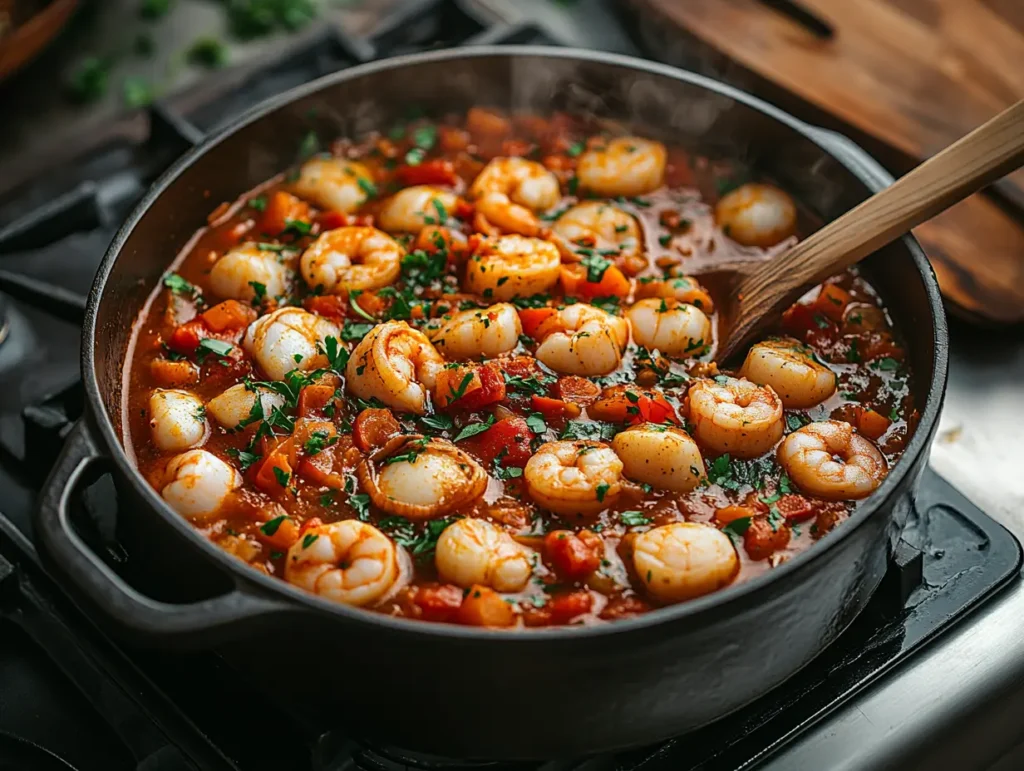

🔪 1. Sauté the Aromatics
Start by heating the olive oil in a large, heavy-bottomed pot or Dutch oven over medium heat. Add the diced onion, thinly sliced fennel, and diced celery. Cook for 6–8 minutes, stirring occasionally, until the vegetables have softened and the onion is translucent. Add the minced garlic and cook for another 1–2 minutes until it becomes fragrant, but be careful not to let it brown.
🍅 2. Build the Broth
Stir in the tomato paste and let it cook for about a minute to caramelize slightly, which will deepen the flavor. Add the crushed tomatoes, vegetable broth, bay leaf, dried oregano, and red pepper flakes. Season lightly with salt and pepper. Bring the mixture to a boil, then reduce the heat and let it simmer, uncovered, for 20–25 minutes. This allows the flavors to meld together and the broth to thicken slightly.
🦐 3. Add the Seafood
Pat the scallops dry with a paper towel to remove any excess moisture. Add the shrimp and scallops to the pot and let them simmer gently for 5–7 minutes, just until the shrimp are pink and curled and the scallops are opaque and firm. It is crucial to avoid overcooking, as the seafood can become rubbery very quickly.
🌿 4. Final Touches
Taste the stew and adjust the salt and pepper as needed. Remove the bay leaf before serving. Stir in the chopped fresh parsley just before you ladle the cioppino into bowls.
🥖 Serving Suggestions: How to Enjoy Your Italian Seafood Stew
🍞 Best Accompaniments
| Side Dish | Description |
|---|---|
| Crusty Sourdough Bread | A San Francisco classic, perfect for soaking up every last drop of the flavorful broth. |
| Grilled Polenta | Adds a creamy texture that provides a lovely contrast to the stew. A great choice for those following a guide to gluten-free living. |
| Steamed Rice | A neutral base that allows the rich flavors of the cioppino to stand out. |
| Roasted Vegetables | Complements the rich, savory seafood and adds another layer of flavor to the meal. |
Serve the cioppino hot, with a drizzle of good-quality olive oil and a squeeze of fresh lemon. A sprinkle of additional fresh parsley or chopped basil adds a fresh, herbal finish that brightens up the dish.
🔄 Variations and Substitutions
Cioppino is a very flexible dish, so feel free to use what you have on hand or adjust the ingredients based on your personal preferences or dietary needs.
✅ Ingredient Swaps

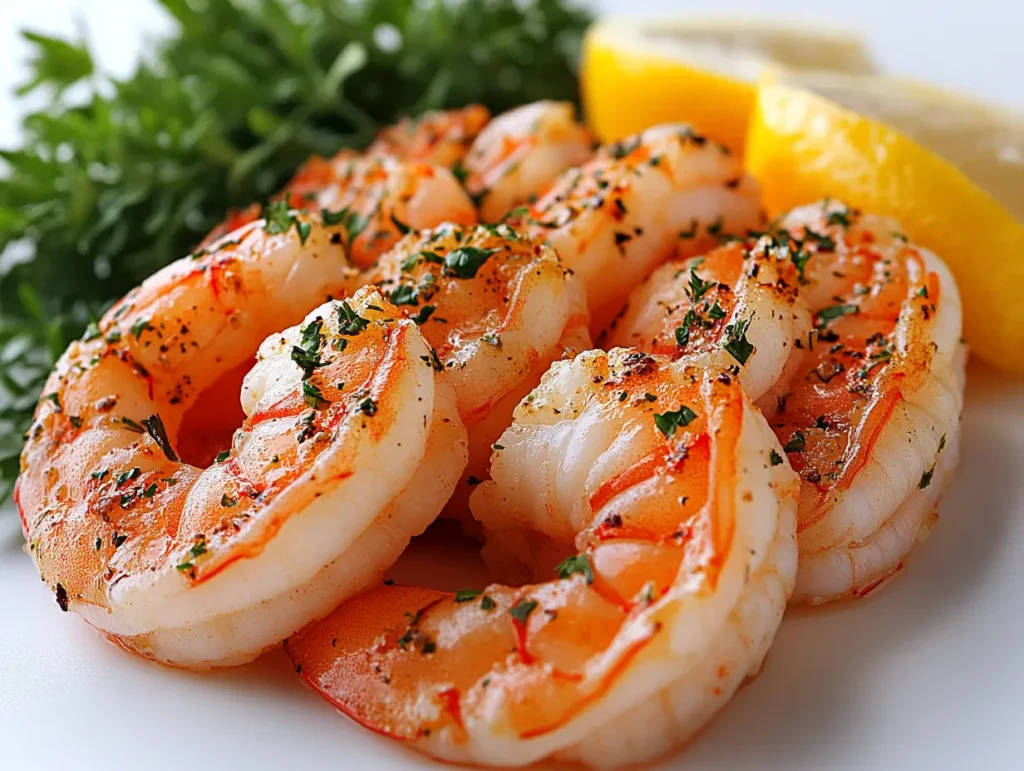


| Substitute For | Use Instead | Notes |
|---|---|---|
| Scallops | Firm white fish (such as cod, halibut, or snapper) | Cut the fish into chunks to ensure even cooking. |
| Shrimp | Lobster tail or firm tofu (for a pescatarian option) | Make sure the pieces are bite-sized and cooked gently to maintain their texture. |
| Fennel | Leeks or extra celery | This will result in a milder flavor but will still provide a delicious aromatic base. |
| Vegetable broth | Seafood broth | For a deeper, more pronounced ocean flavor (be sure to check the label for any additives). |
For this particular cioppino recipe, it is best to avoid shell-on seafood or long-cooking shellfish, as the timing and ease of preparation are specifically geared for shrimp and scallops.
🧠 Tips for Perfect Cioppino Every Time

- Use high-quality seafood: Whether fresh or frozen, the quality of your seafood will directly impact the flavor of the stew.
- Don’t overcook the seafood: Add the shrimp and scallops at the very end of the cooking process to ensure they remain tender and succulent.
- Taste as you go: Tomato-based broths benefit from seasoning adjustments throughout the simmering process.
- Simmer, don’t boil: Once the seafood has been added, keep the heat gentle to avoid a tough texture.
- Let it rest briefly: Allowing the cioppino to rest for a few minutes off the heat helps the flavors to develop before serving.
🐟 How Cioppino Compares to Other Seafood Stews
Here’s a look at how shrimp and scallop cioppino stacks up against some of its global counterparts:
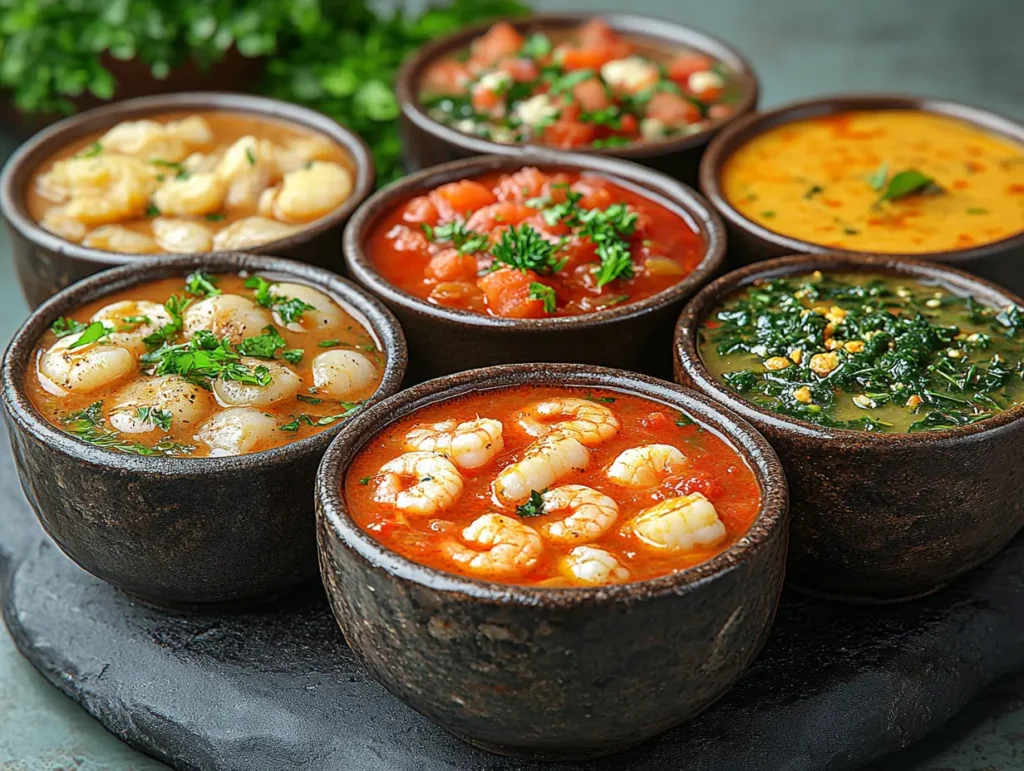
| Stew | Origin | Base Flavor | Common Seafood | Distinct Traits |
|---|---|---|---|---|
| Cioppino | Italian-American | Tomato, herbs, garlic | Shrimp, scallops, fish | Rustic, robust, and a true West Coast heritage. |
| Bouillabaisse | France (Provence) | Saffron, tomato, fennel | A variety of fish, shellfish | Often includes orange zest and saffron, giving it a unique flavor profile. |
| Finnish Salmon Soup | Finland | Cream, dill, leeks | Salmon, potatoes | A rich and creamy soup, unlike the tomato-based stews. Try this Finnish salmon soup recipe for a different experience. |
| Moqueca | Brazil | Coconut milk, lime | Fish, shrimp | A tropical stew with a perfect balance of sweet and heat. |
| Zarzuela de Mariscos | Spain (Catalonia) | Tomato, paprika | Shellfish, monkfish | Rich, smoky, and a true taste of the Mediterranean. |
Cioppino’s bold simplicity and rich, tomato-forward profile make it a standout dish for home cooks who want elegance without unnecessary complexity.
🍽️ Storage and Reheating Tips
Cioppino is best enjoyed fresh, but it can be stored and reheated with care.
🧊 Storing
- Refrigerator: Store any leftovers in an airtight container for up to 2 days.
- Freezer: Freezing is not recommended, as it can cause undesirable texture changes in the seafood.
🔥 Reheating
Reheat the stew gently on the stovetop over low heat. It is important to avoid boiling the cioppino; simply heat it until the seafood is warmed through to prevent it from becoming tough.
🥇 Shrimp & Scallop Cioppino: A Seafood Lover’s Must-Make
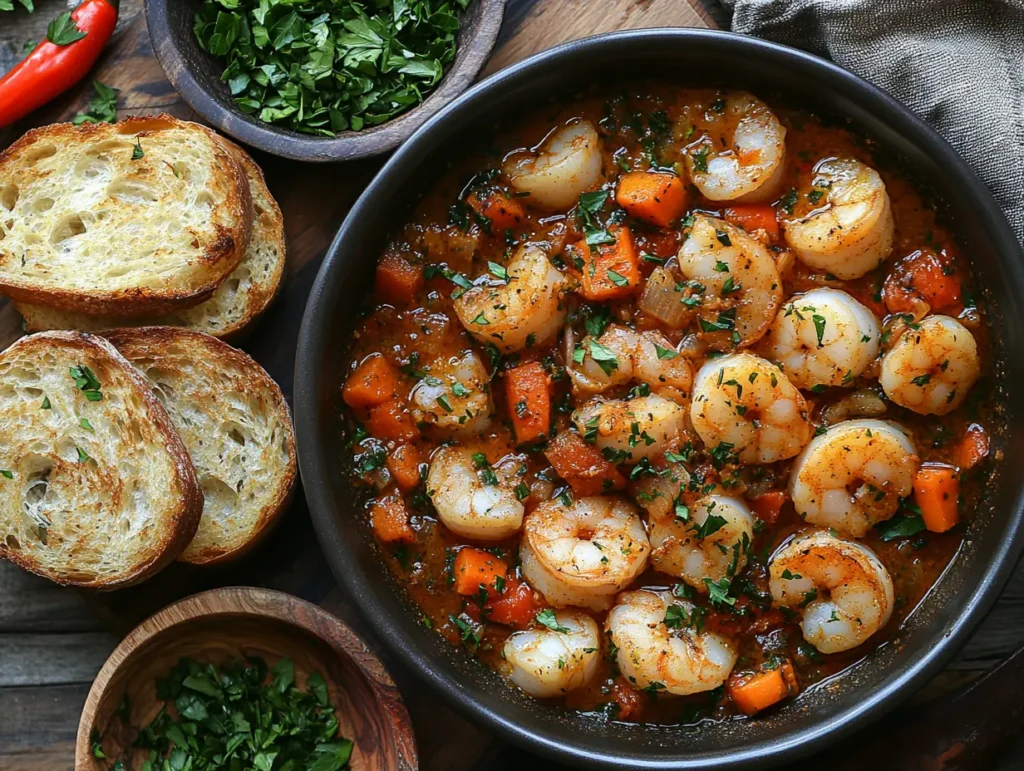
Shrimp and scallop cioppino is more than just a stew—it’s a celebration of Italian-American culinary heritage and the bounty of the sea. With its rich broth, succulent seafood, and inviting aroma, it delivers restaurant-quality comfort in a home-cooked meal. Whether you are new to making seafood dishes or a seasoned home chef, this cioppino recipe offers a satisfying and adaptable dish that is sure to become a favorite in your household. If this inspires you to explore further, you might also enjoy these other seafood rice recipes.
- Prep your ingredients before you start cooking—this stew comes together very quickly.
- Pair it with a fresh side salad or a light grain to round out the meal.
- For dessert, follow this hearty stew with one of these 10 easy healthy desserts.
Ready to bring a taste of the California coast to your kitchen? This shrimp and scallop stew is the perfect dish to warm hearts, spark conversation, and satisfy all of your seafood cravings.
🍲 Star Stew: Cioppino Preview
Print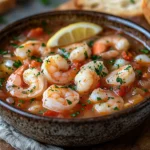
Shrimp and Scallop Cioppino
- Total Time: 50 minutes
- Yield: 4 servings 1x
- Diet: Gluten Free
Description
This rich, Italian-American seafood stew combines tender shrimp and scallops in a garlicky, herb-infused tomato broth. Inspired by San Francisco’s fishing wharves and Ligurian traditions, it’s elegant, comforting, and perfect for both weeknights and special occasions.
Ingredients
- 2 tbsp olive oil
- 1 medium yellow onion, diced
- 1 small fennel bulb, thinly sliced (optional)
- 2 stalks celery, diced
- 5 cloves garlic, minced
- 1 can (28 oz) crushed tomatoes
- 2 tbsp tomato paste
- 3 cups vegetable broth
- 1 bay leaf
- 1 tsp dried oregano
- ½ tsp red pepper flakes (optional)
- 1 lb shrimp (peeled & deveined)
- 1 lb sea scallops (dry)
- ¼ cup fresh parsley, chopped
- Lemon wedges, for serving
- Salt and pepper, to taste
Instructions
- Heat olive oil in a large pot over medium heat.
- Sauté onion, fennel, and celery for 6–8 minutes until softened.
- Add garlic and cook for 1–2 minutes.
- Stir in tomato paste and cook for 1 minute.Add crushed tomatoes, broth, bay leaf, oregano, red pepper flakes, salt, and pepper.
- Bring to a boil, then simmer uncovered for 20–25 minutes.
Pat scallops dry. - Add shrimp and scallops to the simmering broth.
- Cook gently for 5–7 minutes until shrimp are pink and scallops are opaque.
- Remove bay leaf, stir in parsley, and adjust seasoning.
- Serve hot with lemon wedges and optional crusty bread or grilled polenta.
Notes
Avoid overcooking seafood to keep it tender. Substitute firm white fish for scallops if desired.
- Prep Time: 15 minutes
- Cook Time: 35 minutes
- Category: Main Course
- Method: Simmering
- Cuisine: Italian-American
Nutrition
- Serving Size: 1 bowl
- Calories: 400
- Sugar: 9 g
- Sodium: 900 mg
- Fat: 14 g
- Saturated Fat: 2 g
- Unsaturated Fat: 12 g
- Trans Fat: 0 g
- Carbohydrates: 22 g
- Fiber: 5 g
- Protein: 40 g
- Cholesterol: 160 mg
Keywords: cioppino, seafood stew, shrimp and scallop stew, Italian seafood recipe, San Francisco cioppino

